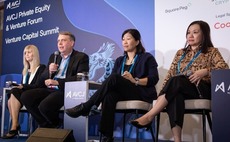
Steady return on SE Asia infrastructure
Most of the commuters who take Malaysia’s Cheras-Kajang Highway each day likely don’t spare a thought for its operators unless they are paying a toll. It might be a source of national pride as one of the first four-lane dual carriageways in the nation, but its users seek reliability rather than excitement.
Reliability has been the watchword for the road's operators, Grand Saga - as well as for CapAsia, which paid about $10 million in 2007 for a 35% stake in Cerah Sama, Grand Saga's parent company. That investment is the latest of several Southeast Asian infrastructure holdings CapAsia has exited in recent years, with the firm selling its stake to a joint venture between majority shareholder Taliworks and Employees Provident Fund for $21.9 million.
Although infrastructure requires the sort of long-term investments that are generally not the province of private equity, CapAsia has made it their specialty. The firm's three funds are all geared toward infrastructure projects in Southeast Asia. Its oldest, the Southeast Asian Strategic Assets Fund (SEASAF), is on the verge of exiting its last asset, with power company Malakoff on course to go public later this year.
Craig Martin, CapAsia's co-CEO, says that many large institutional investors are attracted to the stability that infrastructure assets offer, but do not have the time to work with local partners. CapAsia serves as an intermediary.
"Typically our investments will be minority positions, and that obviously requires a lot of work," Martin says. "That's the role suited to a fiduciary fund manager like us, rather than the big institutional investors themselves."
Although CapAsia secured a 2.5x return on the Cerah Sama investment, the firm would have preferred to hold on to it even longer. In this way the private equity model can be a limitation.
There was a similar dilemma in 2013 when exiting Thailand's Don Muang Tollway in a deal that Martin calls "bittersweet." That divestment netted CapAsia and its co-investor Bank of Tokyo-Mitsubishi UFJ $132 million at a money multiple of just under 3x. While the disruption of traffic from an earlier flood helped determine the timing of the exit, given the choice the firm might stayed involved longer.
"One of the failings of the private equity fund industry is that we are beholden to this 10-year closed-end fund life structure," Martin says. "If there was a better model, we'd hold these assets forever, or until the end of the concession period."
Despite these restrictions, CapAsia believes that there is a solid future in infrastructure investment. Cerah Sama is the type of story that the firm hopes to see more of: a steady return on investment, capped by a sale to a reliable local partner. In a field that other private equity firms overlook, the road ahead is wide open.
Latest News
Asian GPs slow implementation of ESG policies - survey
Asia-based private equity firms are assigning more dedicated resources to environment, social, and governance (ESG) programmes, but policy changes have slowed in the past 12 months, in part due to concerns raised internally and by LPs, according to a...
Singapore fintech start-up LXA gets $10m seed round
New Enterprise Associates (NEA) has led a USD 10m seed round for Singapore’s LXA, a financial technology start-up launched by a former Asia senior executive at The Blackstone Group.
India's InCred announces $60m round, claims unicorn status
Indian non-bank lender InCred Financial Services said it has received INR 5bn (USD 60m) at a valuation of at least USD 1bn from unnamed investors including “a global private equity fund.”
Insight leads $50m round for Australia's Roller
Insight Partners has led a USD 50m round for Australia’s Roller, a venue management software provider specializing in family fun parks.






